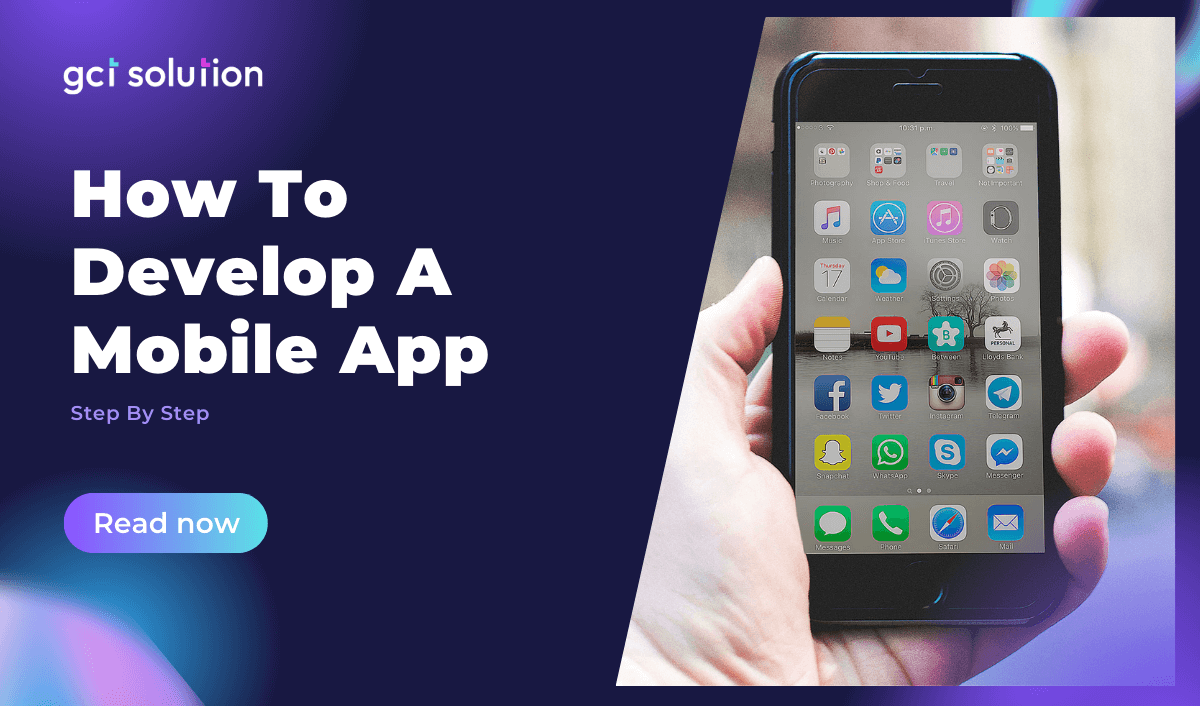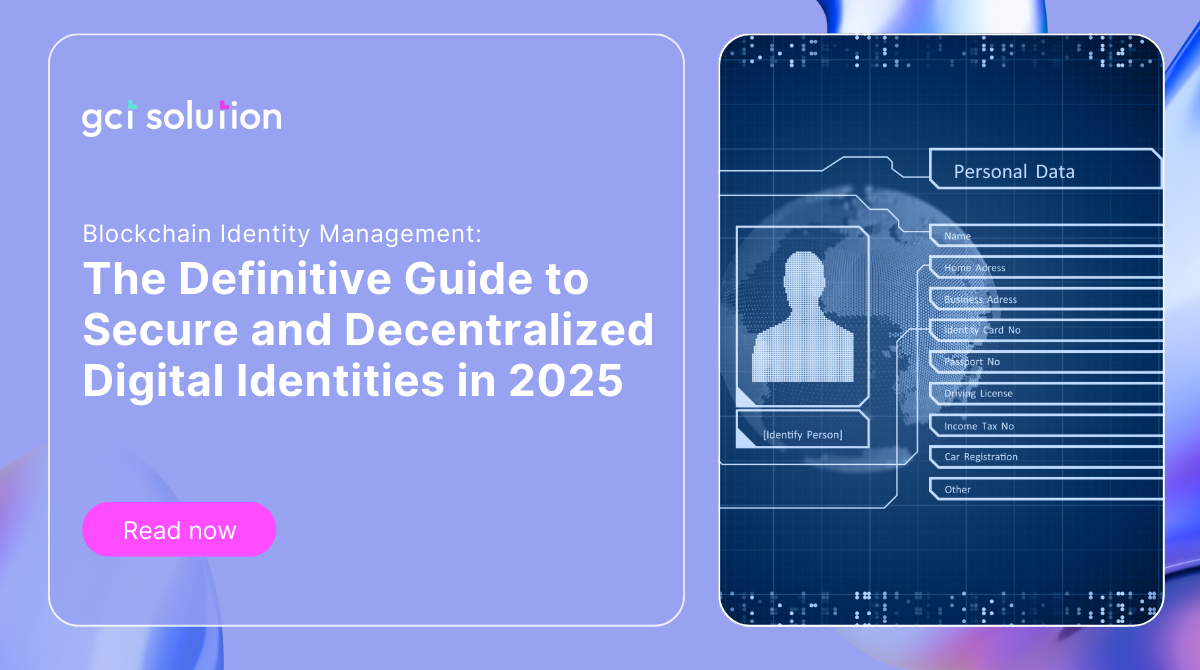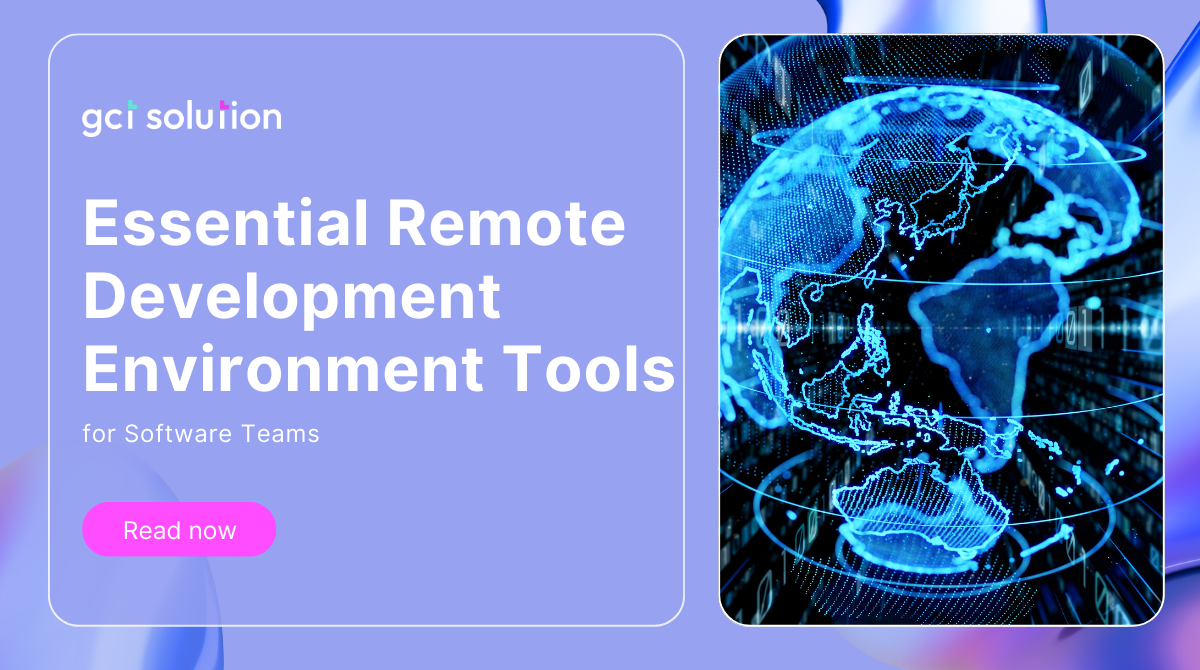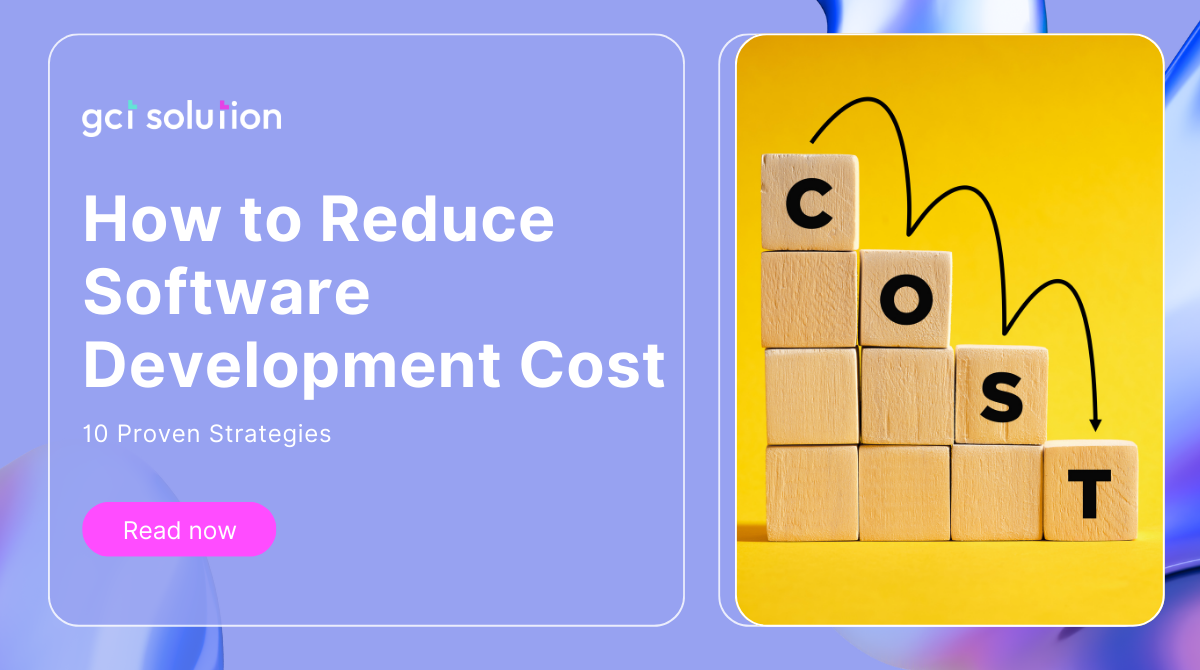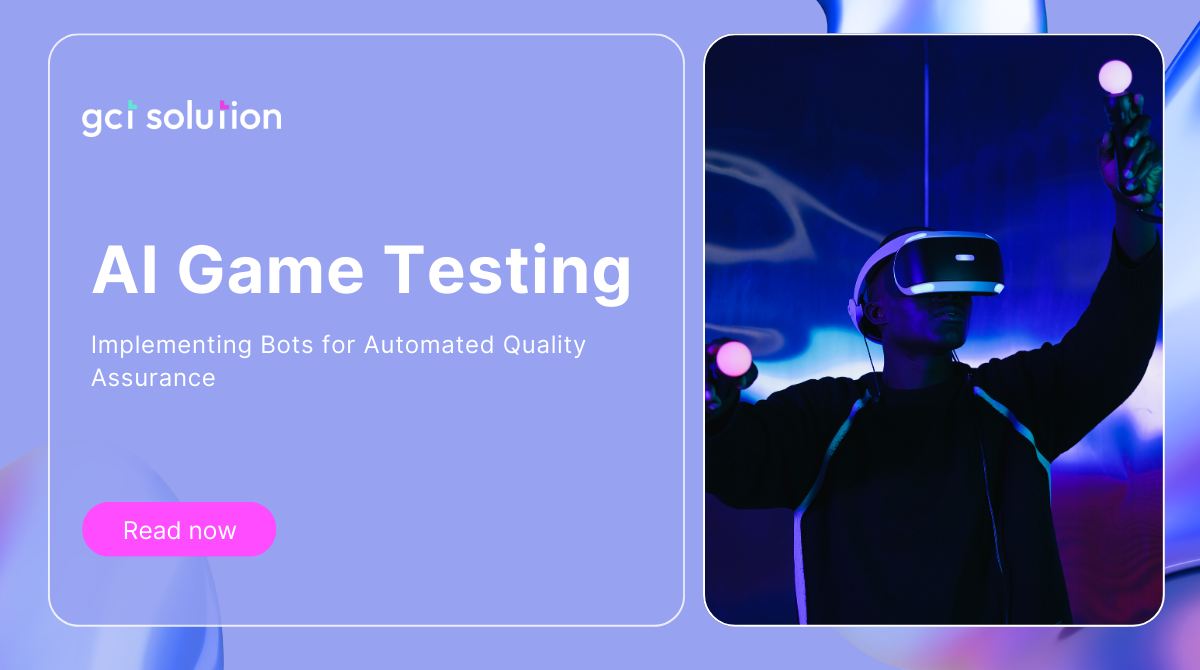Smartphones are now a crucial part of human life. Even established brands recognize that interacting with consumers on their smartphones and other mobile devices is the most efficient method to attract their attention, generate interest in the brand, and encourage them to make a purchase. That’s why the number of mobile apps have sharply grown for years. With our experience, GCT Solution, a top mobile app development company in Vietnam, suggests 7 detailed steps to help you begin you mobile app development project from scratch.
Mobile App Development Process suggested by GCT Solution
1. Planning and Research
The planning phase should start as soon as you have an idea for a mobile app in your head. The planning stage should address a number of high-level questions concerning the viability of your idea in the market rather than selecting how your app will be programmed.
Market research is a must-have part of planning. It is necessary to answer questions like: "Are there other mobile applications resembling ours?", "What does my mobile app require?", and "What is the value proposition of my app?". Before investing a huge amount of money and time in developing and launching your mobile app, it is crucial to know whether there is a market niche for your product.
In addition, choosing the platforms for your mobile app is an important decision (iOS, Android, Web, etc.). You must choose among a native, hybrid, progressive or cross-platform strategy. Consider the level of competition and the location of your target market when choosing the suitable platforms. This step can help you to determine whether the mobile app is feasible, and where you would focus initial development efforts.
To ensure that your mobile app has a possibility of success, it is crucial to make an effort in advance on preparation. Wonder some questions such as: (1) Are there users of your app?; (2) Are there users willing to pay for your app? You should answer "yes" to these questions with confidence before moving on to the next steps.
2. Mobile App Prototyping
During the prototyping phase, you begin quickly creating wireframes and making adjustments based on user or client feedback. A wireframe, which provides an overall sense of the operation and flow of your mobile app, can be viewed as a low-fidelity reference to the UI / UX design. Focus on displaying the main features of your MVP (minimum viable product) in your wireframes rather than giving them a comprehensive feature set.
It is recommended that you collect feedback from a large number of samples. Otherwise, you risk creating a mobile app that cannot meet the expectations or demands. For instance, you create a boat booking app. But your product is useless if your target audience won't bother to use that app, because they just want to go to the port and directly buy tickets at the quay.
It is crucial to adopt an iterative process, so you should show as many mock-ups to your users as possible, allowing the functions of your mobile applications to change and adapt. Spend time researching and observing, because you should be certain that your mobile app will satisfy the demands of your audience. Instead of going back to this stage in the middle of development, it is preferable to carry out the beginning.
3. Mobile App Design
We will only briefly cover some of the most significant elements in the design phase of developing a mobile app, because there are hundreds of elements
Firstly, it is up to your UI / UX designers to determine the wireframes. This involves UI design, user flow definition, a comprehension of element hierarchy, etc. You should create high-fidelity mockups that your developers use to display crucial functions. These mockups should include what happens when objects are tapped, swiped, dragged, etc.
If you don't already have one, you should create a brand guideline to ensure that your mobile app identity is recognizable and well-understood by both your UI designers and developers. Each screen must adhere to your principles, so that your mobile app is cohesively designed.
At this stage, a marketing strategy should also be prepared. Typically, this involves your mobile app promotion plan. It is necessary to build a website, a series of newsletter, or social media.
Related articles:
- 3 Principles Of Mobile App Design To Bear In Mind
- The Complete Process Of UX Design For Mobile Apps
- What Are Essential In The UI Process For Your Mobile Apps?
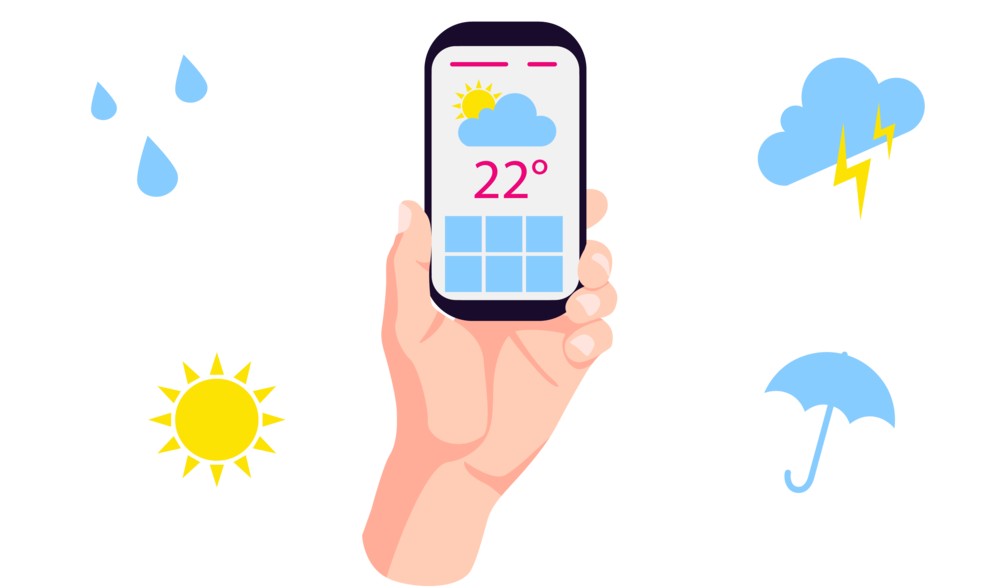
4. Mobile App Development
You start to write code during the development phase. One or more programming languages can be used to develop your mobile app. You can discover some most popular mobile app development languages suggested by GCT Solution here.
Here is where methodologies like Agile or Waterfall can be applied. A mobile application should ideally be developed using an Agile methodology.
Additionally, it's crucial to incorporate an analytics engine into your mobile app. Once your app is launched to the public, you can utilize the analytics to learn more about your users to improve your product.
5. Mobile App Testing
Testing happens concurrently with the development phase. To make sure that any bugs are fixed as soon as possible, all testing types are required. Test cases can lengthen the development process, but in the long term, they can significantly cut down on the time and cost associated with maintenance and support.
Testing will also be beneficial later on when your mobile app is being maintained. Without needing a tester to manually go through test cases one by one, you may run all of your test cases after making any changes to see whether your modifications might have broken other parts of the system.
6. Mobile App Release
This is where you submit your product to the App Store or Play Store. Understanding this procedure is crucial, because you will carry it out each time you release a new version of the mobile app.
You ought to have fixed bugs that your testers detect, and your program should meet all requirements of the store as well as your clients before you submit it.
After releasing your app, you will be looking for users’ feedback. Then you may add new features, and then re-release. This process might be repetitive after you release any version of your mobile app.
7. Mobile App Maintenance And Upgrading
This phase should start during and after the release. During maintenance, you check your mobile app performance, address any problems that may happen, and ensure that it keeps functioning as intended.
You also need to upgrade new versions to your mobile app regularly, so that your users can have better experience with your product.
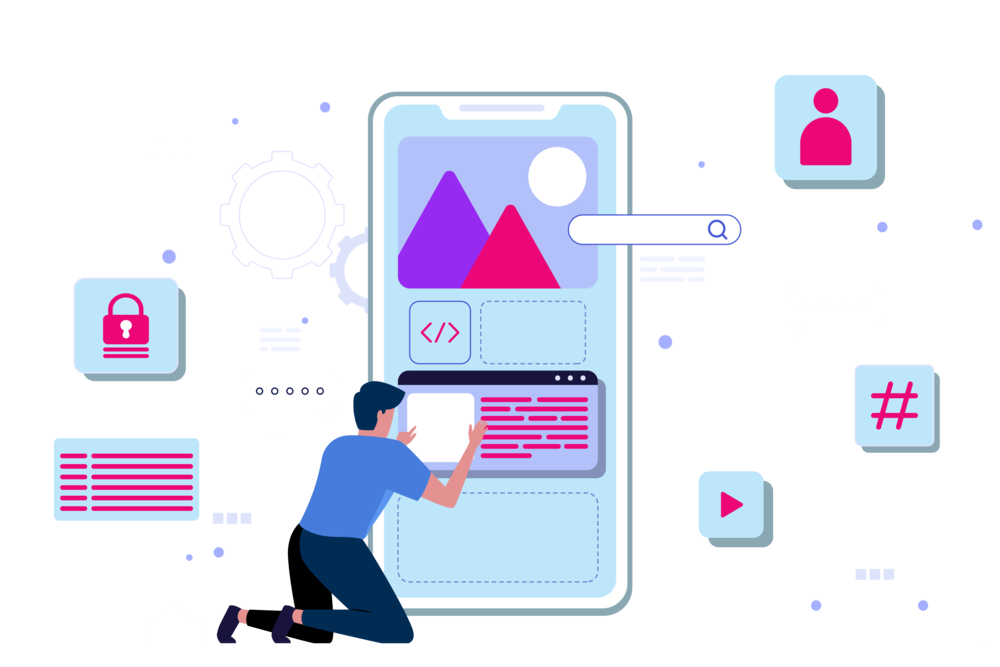
Final thought
In this digital era, if you want to become more and more successful, it is important that you develop a mobile application for your employees and/ or your customers. There are some significant steps suggested by GCT Solution; however, you can add or cut down some steps depending on your demands.
If you are seeking a seasoned IT provider, GCT Solution is the ideal choice. With 3 years of expertise, we specialize in Mobile App , Web App, System Development, Blockchain Development and Testing Services. Our 100+ skilled IT consultants and developers can handle projects of any size. Having successfully delivered over 50+ solutions to clients worldwide, we are dedicated to supporting your goals. Reach out to us for a detailed discussion, confident that GCT Solution is poised to meet all your IT needs with tailored, efficient solutions.

